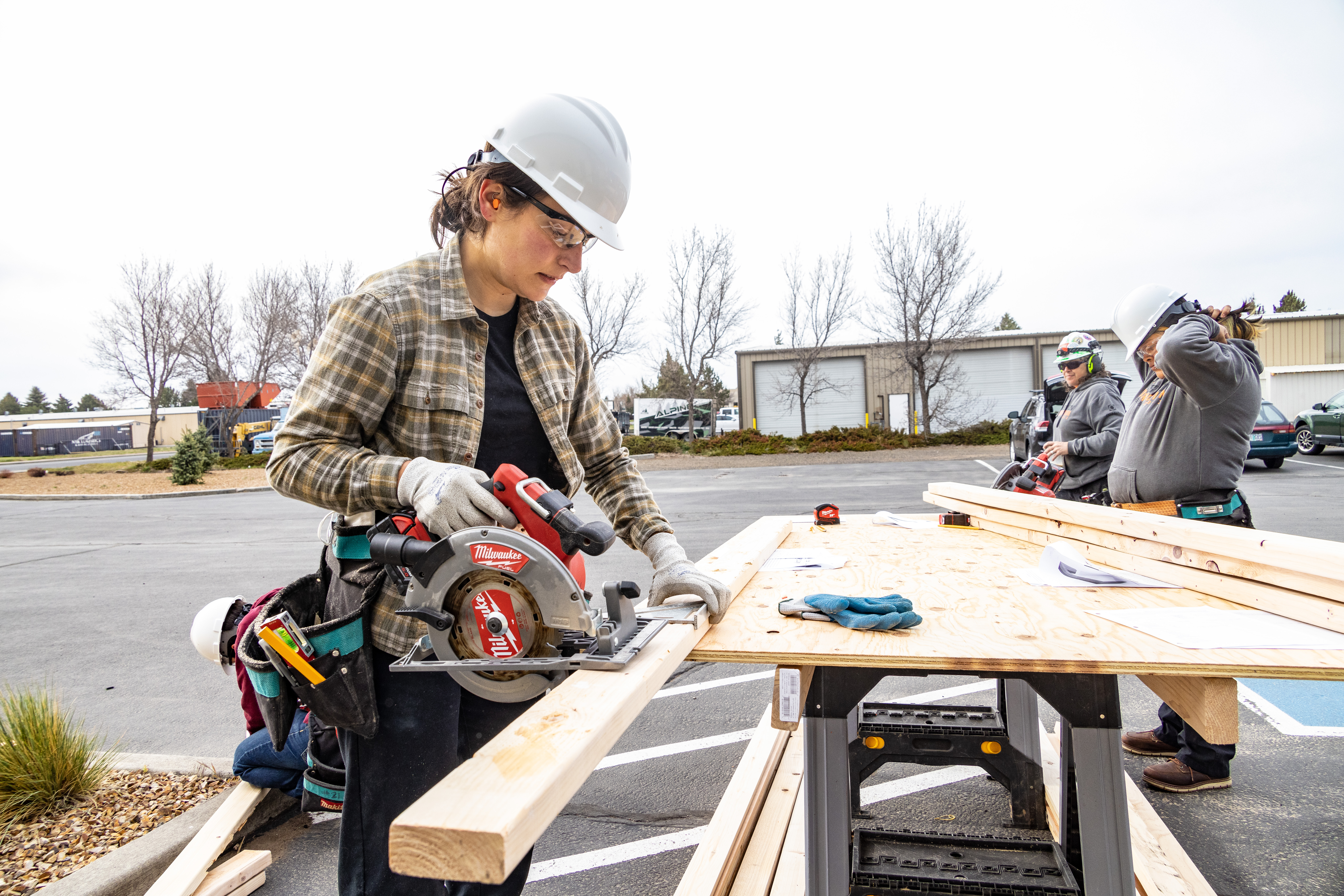There are multiple entry points into the skilled trades. For those just starting out, an apprenticeship is a stellar option to get paid while you train, gain relevant work experience and work towards journeyman certification. While there are lots of different programs out there, community colleges offer a great route because you’ll receive paid on-the-job training and classroom instruction. We talked to Rogue Community College and Klamath Community College about their robust program offerings. Here’s what you need to know:
What is a skilled worker?
Skilled workers are generally characterized by higher or specialized expertise levels attained through prolonged training, experience or education, and typically corresponds with higher wages. Skills in science, technology, engineering and math (STEM) are essential in many of the roles.
Why become an apprentice?
Tradespeople are needed like never before and the demand is expected to grow. As a registered apprentice, you’ll receive supervised paid training and classroom instruction. Working alongside other apprentices, you’ll gain experience, college credit, industry certifications and above-average wages.
What types of programs are out there?
Both Rogue CC and Klamath CC offer several apprenticeship programs. Rogue CC’s most popular programs include Inside Electrician, HVAC and Sheet Metal Worker while Klamath CC’s include Carpentry, Plumbing and Millwright. If you’re unsure where to start, don’t hesitate to reach out and setup and informational meeting.
What does training look like?
Once you’re a registered apprentice, you’ll be recruited and sponsored by a company to begin your training. Most apprentice programs take four years to complete at 8,000 hours of paid training. Some may take less depending on the position. You’ll also take part in classroom instruction to complement your training. Beyond that, you’ll gain a sense of comradery working alongside your classmates and fellow apprentices.
What pre-requisites do I need?
The minimum requirements for each program vary slightly but you must be at least 18 years of age, have a high school diploma or GED and complete one year of high school algebra with a “C” or better. While a “C” is a minimum requirement, many of these programs are highly competitive so focusing on math proficiency is definitely recommended. There are practice assessments available, like Workkeys for example, that will give you a good indication of what math skills you may want to practice.
When can I apply?
Each apprenticeship has a specific application period with programs starting in the fall and spring. Reach out to Rogue CC and Klamath CC for full application details.
What can I do to prepare before applying?
There are several activities you can do beforehand to prepare for an apprenticeship from taking shop class in high school to getting certified in first aid training. It’s also important to prepare for your apprenticeship interview. Practice good interview skills like being ready to share situational examples and have a general understanding about what the position does. Math is used daily in many careers. Brushing up on your math skills is definitely a good idea.
For more information on Rogue CC’s program visit roguecc.edu/dept/apprenticeship/. For Klamath CC’s program visit klamathcc.edu/academics/programs/apprenticeship-related-training.

